The Backend
Technical SEO
When it comes to SEO, the architecture and codebase of your website are just as important as the content on the frontend of your web pages.

Backend Optimization
Establishing a solid foundation to build on.
You're probably wondering, what is Technical SEO and how does it affect my website? It's a fair question, especially considering that most people forget or don't have much knowledge regarding the backend side of SEO. But it's arguably just as important, if not more important, than any other aspect of search engine optimization and can have a large impact on your search rankings.
Sitemap
Schema Markup
Page Speed
Sitemap
The roadmap to your website.
The first step to ensuring your website is properly being crawled by search engines is to create a detailed sitemap that accurately reflects all the pages you would like to have indexed. But creating the sitemap is only the beginning, as the sitemap needs to be uploaded to search engines and updated on a consistent basis to account for any new pages or URL changes. Why is the sitemap so important? It provides a simple road map of your website for search engines and lets them know which pages should or shouldn't be indexed. We make sure your sitemap is 100% accurate, only indexing the proper pages and updated on a routine basis.



Page Speed
Keep your website moving fast!
Have you ever been on a slow website and decided to leave out of frustration? Happens all the time. So it goes without saying that having a fast website is crucial for the user experience and helps lower your bounce rate. But how do you go about making your site faster? There are a variety of methods to achieve this, but compressing your files (images, videos, etc.) and minifying your code can sometimes make the biggest impact on your page load speed times. Our team utilizes the most advanced software to help with this task to ensure your website is blazing fast!


Schema Markup
Ever noticed those star ratings that show up in the search results when you search for a particular product? Or how about the price that appears? These are both common examples of schema markup that's added within the code of a website to provide signals to search engines that helpful information is present within those web pages. There are literally hundreds of different schema markups that can be added to a website, making your search listing more attractive and click-friendly to potential customers. It's also something Google appreciates.

301 Redirects
So you have an old web page and want to change the URL for improved optimization (or whatever reason). But if you change the URL, what happens to all the traffic that was going to the old URL and the "link juice" it may have generated through backlinks? That's where 301 redirects come into play. Quite simply, they forward an old URL to a new URL. This will avoid any lost traffic to the old URL and ensure all the "link juice" is passed onto your new URL. This is a very important task that must be done with precision and careful consideration.

Canonical Links
Canonicalization is a delicate process that involves adding code to each of your web pages for proper search engine indexing. For example, let's say you have a category page that displays two dozen products and allows the user to sort by product name or price, which creates a new unique URL in the process. This can be very problematic, as the contents of these pages are all the same - just sorted differently. So including a canonical link in your code lets search engines know that only one URL should be indexed, thereby avoiding duplicate content issues.

